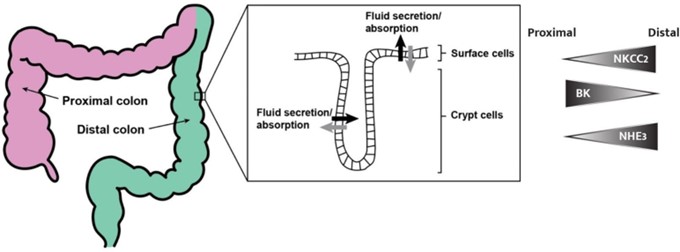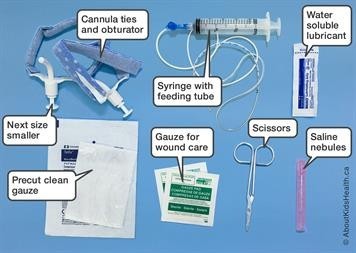JD has been admited after a large portion of his colon has been removed due to cancer Which statement by the patient demonstrates that he understands the function of the Gastrointestinal tract as related to fluid and electrolyte balance.
The colon is responsible for absorbing water and nutrients. I am now at high risk for fluid and electrolyte imbalances.
My colon is only responsible for sodium intake. I can eat more salt to ensure I am not deficient.
The part of my colon that I have left will work overtime to prevent any deficiencies in my electrolytes.
I am going to start drinking more Gatorade to prevent any imbalances from occurring.
The Correct Answer is A
The colon is responsible for absorbing water and nutrients.
I am now at high risk for fluid and electrolyte imbalances. This statement demonstrates that the patient understands the function of the gastrointestinal tract in relation to fluid and electrolyte balance. The colon plays an important role in absorbing water and electrolytes from digested food, and after a large portion of the colon has been removed, the patient may be at higher risk for fluid and electrolyte imbalances.
Received message. The correct option is a. The colon is responsible for absorbing water and nutrients. I am now at high risk for fluid and electrolyte imbalances. This statement demonstrates that the patient understands the function of the gastrointestinal tract in relation to fluid and electrolyte balance. The colon plays an important role in absorbing water and electrolytes from digested food, and after a large portion of the colon has been removed, the patient may be at higher risk for fluid and electrolyte imbalances.

Nursing Test Bank
Naxlex Comprehensive Predictor Exams
Related Questions
Correct Answer is ["A","B","C","D","E"]
Explanation
A tracheostomy is a surgical procedure that involves creating an opening in the neck to establish a direct airway to the trachea. It is usually done in patients who require long-term mechanical ventilation or have upper airway obstruction. In case the tracheostomy becomes dislodged, the following equipment should be available to ensure the patient's safety:
Tracheostomy kit setup: This includes a new tracheostomy tube, obturator, and other equipment necessary to replace the dislodged tracheostomy tube.
Suction equipment: Dislodgement of the tracheostomy tube can cause airway obstruction due to the presence of secretions. Suction equipment can be used to remove the secretions and prevent airway obstruction.
Smaller Tracheostomy Tube and Same size Tracheostomy Tube: If the dislodged tracheostomy tube cannot be reinserted or is damaged, having smaller and same size tracheostomy tubes available can be helpful in establishing a new airway.
Ambu bag: This is a manual resuscitation device used to provide positive pressure ventilation to the patient. It can be used in case the patient's breathing is compromised due to airway obstruction.
Oxygen: The patient may require supplemental oxygen if their breathing is compromised due to airway obstruction.
Larger Tracheostomy Tube: A larger tracheostomy tube may not be needed immediately and may be contraindicated in some cases as it can cause trauma to the tracheal wall.

Correct Answer is A
Explanation
A. Respiratory acidosis.
COPD is a chronic lung disease that can lead to an accumulation of carbon dioxide (CO2) in the body. This can cause respiratory acidosis, a condition in which the blood pH is lower than normal due to an excess of CO2.
In respiratory acidosis, the partial pressure of carbon dioxide (PaCO2) in the blood is increased and the pH is decreased. The kidneys atempt to compensate for the acidosis by excreting more acid in the urine and retaining more bicarbonate, but this compensation is usually not enough to fully correct the problem.
Metabolic alkalosis (option B) is a condition in which the blood pH is higher than normal due to an excess of bicarbonate in the blood. This is usually caused by loss of acid from the body, such as through vomiting or use of diuretics.
Respiratory alkalosis (option C) is a condition in which the blood pH is higher than normal due to a decrease in PaCO2. This can be caused by hyperventilation, which leads to excessive elimination of CO2 from the lungs.
Metabolic acidosis (option D) is a condition in which the blood pH is lower than normal due to an excess of acid in the blood. This can be caused by a variety of factors, including kidney failure or lactic acidosis.
Whether you are a student looking to ace your exams or a practicing nurse seeking to enhance your expertise , our nursing education contents will empower you with the confidence and competence to make a difference in the lives of patients and become a respected leader in the healthcare field.
Visit Naxlex, invest in your future and unlock endless possibilities with our unparalleled nursing education contents today
Report Wrong Answer on the Current Question
Do you disagree with the answer? If yes, what is your expected answer? Explain.
Kindly be descriptive with the issue you are facing.
